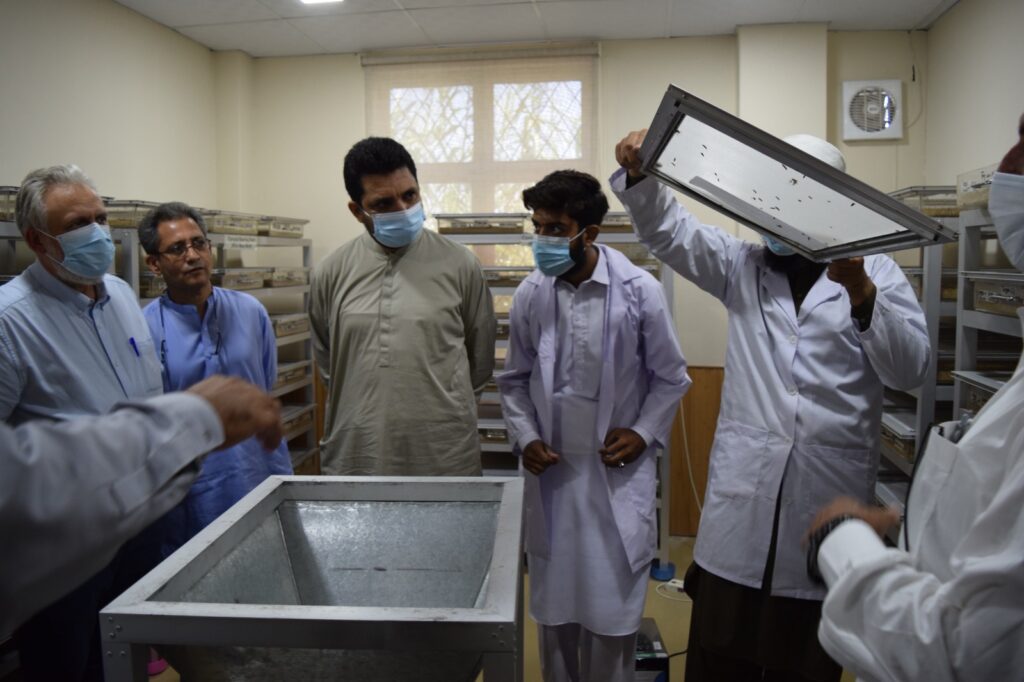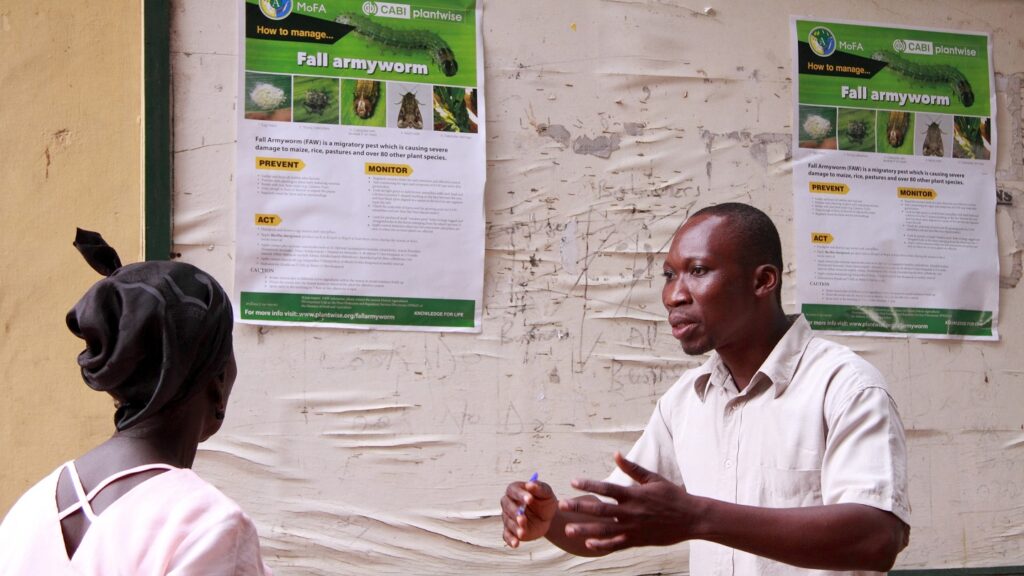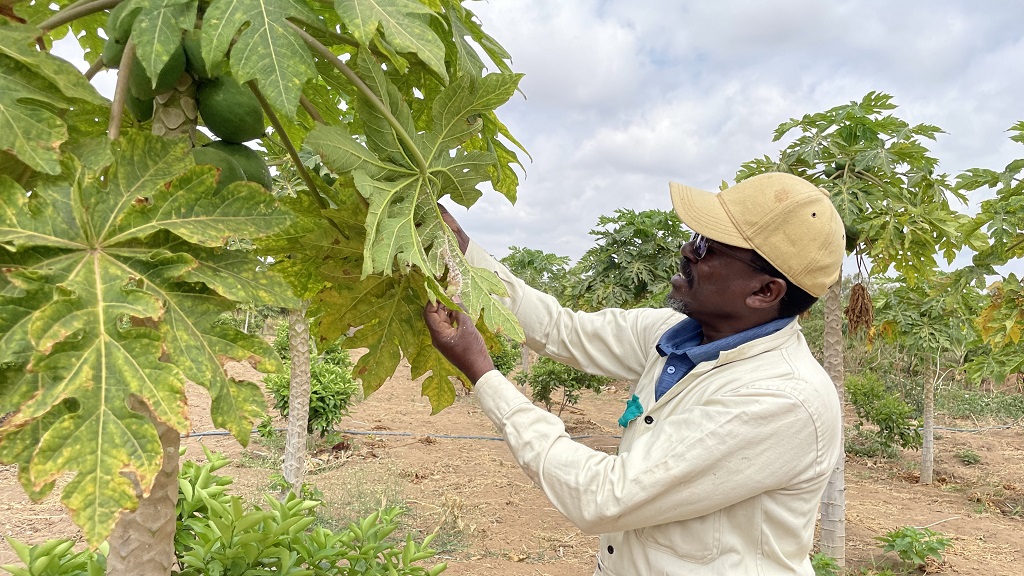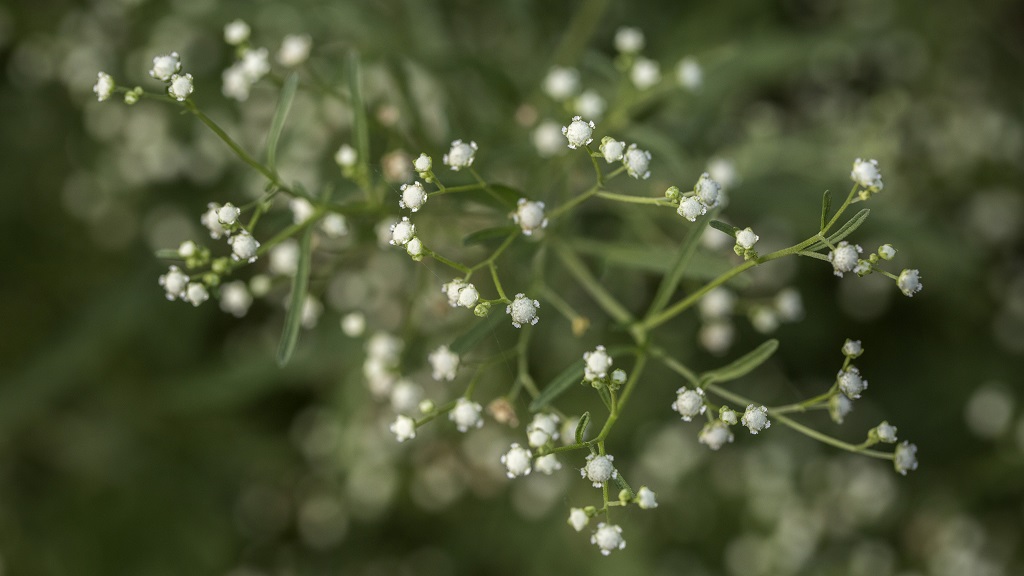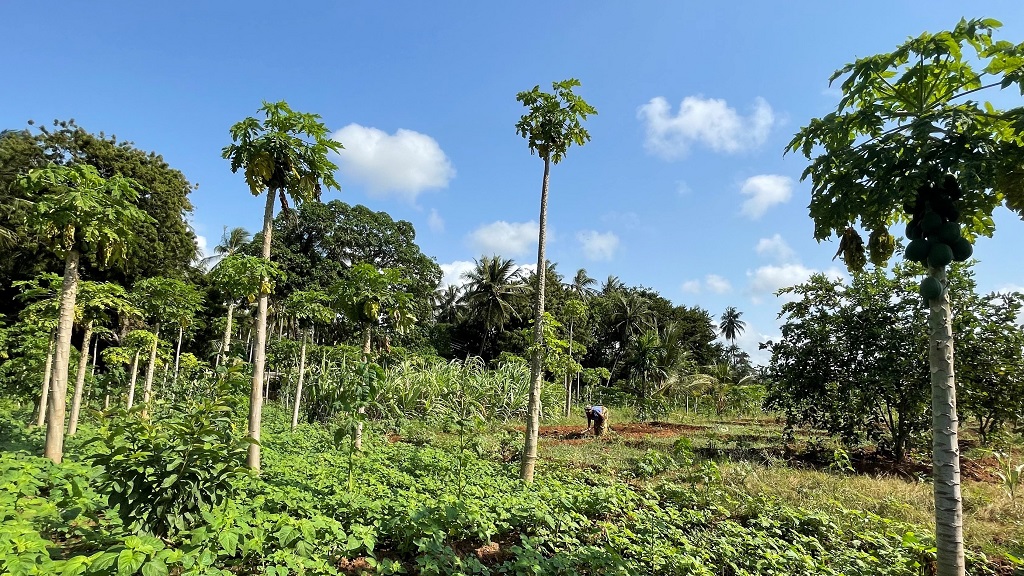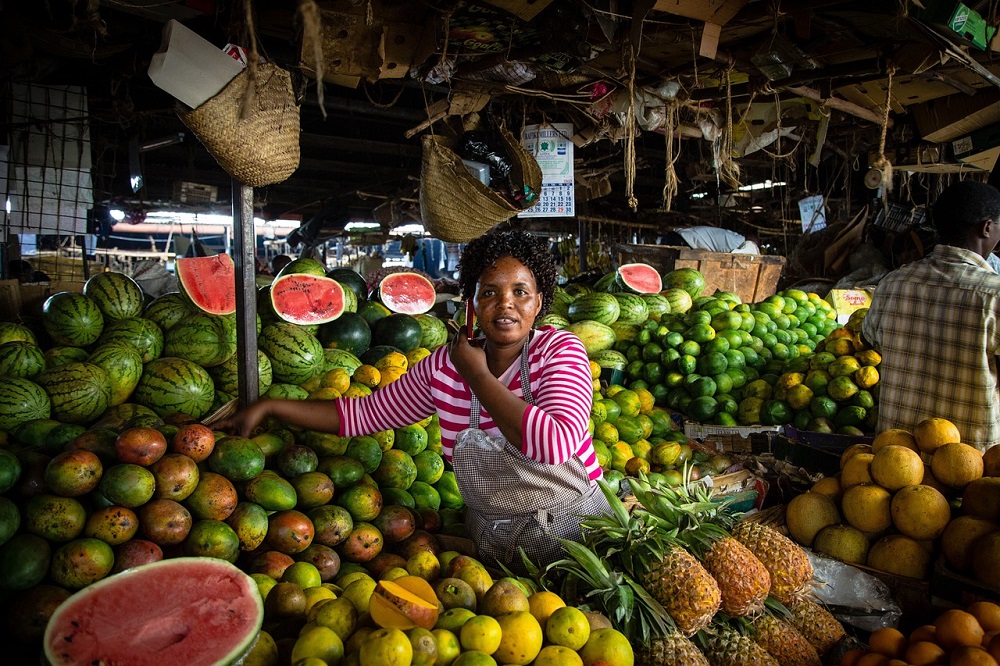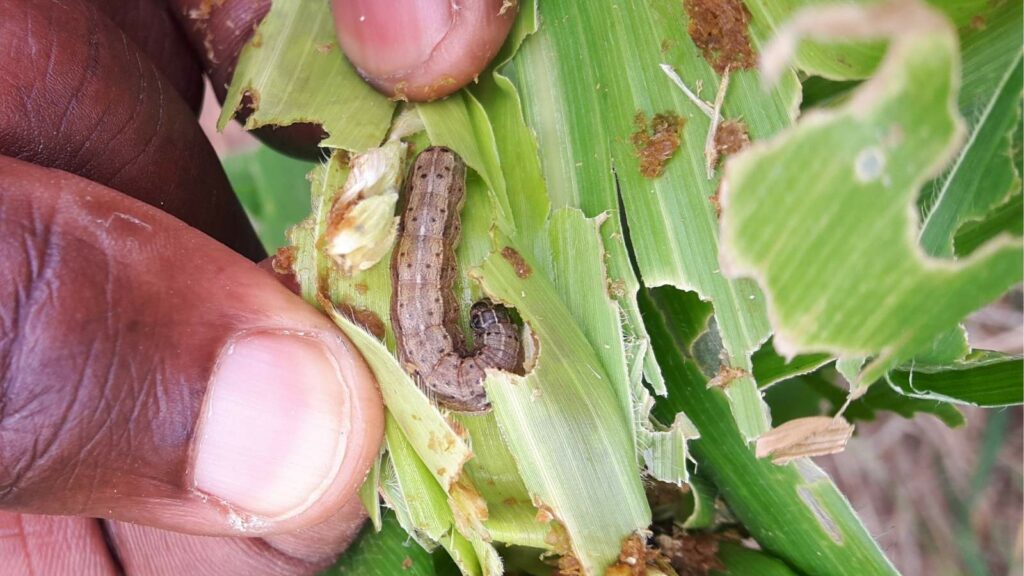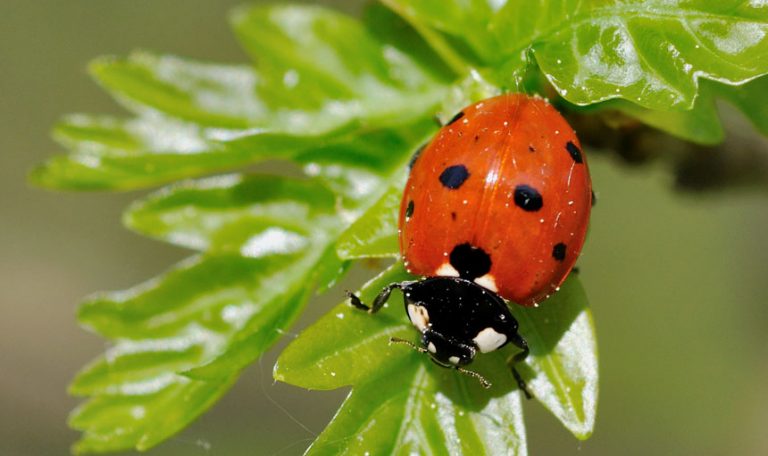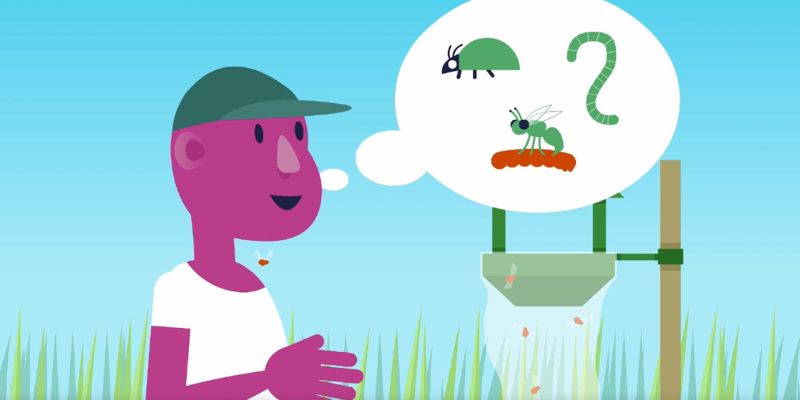Trichogramma mass rearing facilities piloted in Pakistan
Championing sustainable agriculture by promoting lower-risk plant protection solutions to tackle crop health challenges is a key objective of CABI’s PlantwisePlus programme. In particular, the managing of plant pests and diseases. A cornerstone of this work is setting up local facilities for the mass rearing of lower-risk plant protection solutions.
CABI study unearths important lessons for the fight against fall armyworm
A study by CABI contributes important knowledge on fall armyworm (Spodoptera frugiperda). CABI’s research findings suggests that employing more sustainable and environmentally friendly solutions could help mitigate the damaging impacts of the species.
Biocontrol agent released to safeguard crops from parthenium weed in Pakistan
Invasive plants can be extremely harmful to crops. “Famine weed” or parthenium is one such plant. Native to tropical America, it was accidentally introduced to several countries. In Pakistan, the weed now covers thousands of hectares of agricultural and rangeland. And it poses an economic burden to farmers.
Controlling the papaya mealybug pest – progress made in coastal Kenya
An initiative to combat the destructive papaya mealybug in Kenya is reaping rewards. A natural predator – a parasitic wasp – has been introduced to coastal counties to help control the pest. This tiny wasp is helping to prevent the damage caused by the mealybug. It’s not only helping to save papaya farms. It’s safeguarding…
Ukulima True – a Kenyan farming campaign to help reduce the risk of pesticides
As demand for food grows globally, farming practices must intensify. Farmers will need to use more low-risk tools to tackle plant pests and diseases. Pesticides are an important tool for pest management. However, they should be seen as part of a kit of many tools, not the only tool. This is because pesticides also pose…
What are bioprotection products, and how do they work?
Bioprotection products are nature-based solutions to managing crop pests and diseases. More and more growers are turning to environmentally sustainable crop pest and disease management solutions, such as bioprotection products. Reasons for choosing more sustainable solutions include pest and disease resistance to chemical pesticides and concerns for human health and the environment.
New bioprotection course paves the way for a more sustainable agricultural landscape
CABI Academy‘s latest course, Introduction to Bioprotection Products, enables agricultural service providers to equip themselves with the knowledge and skills to support smallholder farmers using bioprotection products. Bioprotection, also known as biocontrol, is a more sustainable approach to pest management. Unlike conventional chemical pesticides, bioprotection products are derived from natural sources, making them a safer…

